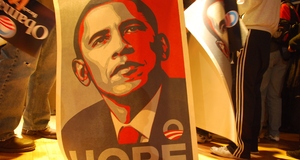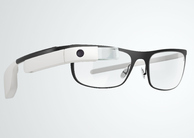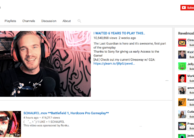Featured Article:Ronald Reagan's Presidential Radio Addresses: Themes of UnityWhile acting as President, Ronald Reagan would appeal on then-current political matters. As Lou Cannon (1991) observes, “Reagan’s bond with the electorate and his experience as an actor would ultimately make it possible for him to mobilize public opinion and translate some of his ‘simple answers’ into useful legislation” (Cannon, 47). During his first term, he made an address on the House of Representative’s budget proposal from late-March 1983. He remarked: “But this isn't just my struggle; it's yours, too. You're not spectators, and I need your help. Together we still have time to beat back the unfair tax increases, hold the line on spending, and keep America strong. If you can't make the big spenders see the light, you can make them feel the heat. Please tell your Representatives not to turn back the clock and squander America's future. Tell them to work with us to keep America on the upswing. If you do, we can usher in a bright new age of prosperity that outshines any other in our history” (Reagan, 1983). Reagan here appeals to Americans to tell their representatives not to increase taxes. While the substance of the appeal is certainly important, the style is just as crucial. He maintains a sense of inclusiveness because he tells his listeners that the struggle is being faced by both himself and the nation as a whole. As such, Reagan echoed the sensibility of the common man because he disliked high taxes like anyone else. Like Roosevelt, Reagan’s down-to-Earth sensibility is what every great American President identified with. A likely cause for this effective bond is that, since Reagan was an American elected by the people for the people, he was both a President and citizen like anyone else. Like Roosevelt’s awareness of speaking to an imaginary group of ordinary Americans, Reagan resonated the concerns of the common citizen. In Kathleen Hall Jamieson’s Book Eloquence in an Electronic Age: The Transformation of Political Speechmaking, she maintains: “Reagan knows that he is addressing individuals—perhaps two or three in a family group around the television set, and not a vast audience in a great hall. Consequently, his style becomes conversational and intimate, dramatizing and storytelling, self-disclosing, personal and intense, and keying upon memorable phrases, uttered whenever possible in memorable political settings. Not all of his successors who try the same approach will find it working well for them. After all, Reagan was an actor, reading lines” (Auer, 115).Ronald Reagan believed in many patriotic values that make America great: loyalty, duty, hard-work and many others. Since these values encompass many Americans, it was not surprising that Ronald Reagan sustained inclusiveness in every one of his Presidential radio addresses. As political historians Robert C. Rowland and John M. Jones (2002) observe note: “If you fell into the category of American, then by his standards you were special as long as you embraced the values that defined American heroism” (Rowland & Jones, 104). In order to relate to people better, Reagan would allude to popular culture in order to relay a general point. As Auer points out: …even one-liners recycled from long-ago movies, were a stock in trade for Reagan. Sometimes they were used to make a political point; other times they seemed avenues for releasing tension or dealing with stress” (Auer, 115) In April 1988, one of his addresses focused on the classic film Casablanca. Reagan remarked: “There's a memorable bit of dialog between Claude Rains and Humphrey Bogart in the movie ‘Casablanca.’ Rains, playing the Vichy French police inspector, asked Bogart why he came to Casablanca; and Bogart says it was for ‘the waters.’ ‘But this is the desert,’ replies Rains, ‘there are no waters here.’ And Bogart, unflappable as ever, responds, ‘I was misinformed.’ Well, when it comes to the issue of trade, the American people have been misinformed. We seem to hear every night on the evening news that the trade deficit is looming over our economy, threatening at any moment to plunge us back into a second Great Depression” (Reagan, 1988). Reagan calms the nation of their fears that the economy was going downhill. His movie allusion was because his acting experience exposed him to classic films. Likewise, Casablanca was effective because it's iconic momentum grows stronger amid the piles of forgettable movies released each year. In a more “top-down” approach, an effective way that Reagan could appeal to his constituents was to allude to letters he had received from citizens. In April 1983, he spoke of a letter he received from a school. He announced: “A grade school class in Somerville, Massachusetts, recently wrote me to say, "We studied about countries and found out that each country in our world is beautiful and that we need each other. People may look a little different, but we're still people who need the same things." They said, "We want peace. We want to take care of one another. We want to be able to get along with one another. We want to be able to share. We want freedom and justice. We want to be friends. We want no wars. We want to be able to talk to one another. We want to be able to travel around the world without fear." And then they asked, "Do you think that we can have these things one day?" Well, I do. I really do. Nearly 2,000 years after the coming of the Prince of Peace, such simple wishes may still seem far from fulfillment. But we can achieve them. We must never stop trying” (Reagan, 1983). Reading letters from ordinary citizens shows that he paid the same attention to his constituents as he did other matters. In this address, he did not need to evoke the larger theme of unity, as the letter conveyed the virtue already. His selection of this letter was likely intentional because there are several underlying themes. For starters, Reagan dealt with the escalation of the Cold War. To fight it, he announced to the public that he embraced peace. As a Christian himself, the allusion of Jesus Christ as the “Prince of Peace” was effective. Similarly, at the end of the letter, he repeats his common motto “We must never stop trying.” During his political career, he lived by these words because he experienced setbacks, including losing the Republican nomination in the 1976 Presidential campaign. Even amidst perceived failure and obvious difficulties, Reagan could subtly teach a lesson in persistence to his listeners. Reagan’s use of humorizing ordinary events was one of his trademarks. As Auer explains: “A sense of humor and a knack for storytelling is a Reagan strength. Not only does it mellow his associates, but, like Abraham Lincoln, he apparently finds humor a help in coping with stress” (Auer, 108). A clever sense of humor was evident in his first address since his re-election as President in January 1985. He remarked: “Hello again. This is my first radio talk since last November's election, and I'm glad to be back. There was some question if this show would be continued, but I guess the ratings were pretty good, so they took up my option” (Reagan, 1985). In this instance, Reagan was subtle about integrating a simple piece humor. While not a professional comedian by any standards, he enjoyed spinning the most typical events into stories that would garner lively approval from his listeners. Specifically, Reagan made effective use of the double entendra to display his witty humor to observant listeners. In the first address of his second Presidential term, he compared the cold weather to the economy. He quipped: “As you know, it was so cold here in Washington this week, we had to hold the inaugural ceremonies inside. It was a great disappointment to many who planned to attend, but I'm sure it was a good idea. An outside event would have given new meaning to our planned "freeze" on the Federal Government” (Reagan, 1985). Similarly, in January 1984, he alluded to a blizzard that hit the Washington-area in early-February 1983 (NOAA, 2011). He said: “It's that time again when we're deluged by a blizzard of economic facts, figures, and predictions. I hope you'll keep in mind that economic forecasting is far from a perfect science. If recent history is any guide, the experts have some explaining to do about what they told us had to happen but never did” (Reagan, 1984). In both addresses, Reagan clearly had a talent for looking deeper into ordinary events. In this case, chilly January weather in Washington D.C. is hardly unusual. However, considering that the economy was in danger of slipping on ice, he could integrate a joke about this event into another current event. In this way, Reagan increased his chances that his audience would understand the joke because there were two clever underlying meanings. Telling a humorous joke within a story is one of the most effective ways to gain an audience’s attention. Considering how personable Reagan was, he often exploited this technique. In each double entendra, both jokes reveal that Reagan made subtle use of humor that was simple, witty and funny. Most of his jokes, which possessed all three criteria, would be able to be understood by constituents of all ages. When Ronald Reagan broke through the age barrier in his rhetoric, he could ensure that he would gain the largest-possible listenership. Like Franklin D. Roosevelt, Ronald Reagan looked back on famous Americans. His most common group were his Presidential predecessors. As Historian Paul D. Erickson (1985) points out: “Politicians have at their disposal a wide range of rhetorical devices that can connect them to one degree or another with what voting public might consider “the soul of America.” One such method is simply to invoke the saints of the past, to claim direct ideological and spiritual descent from various Founding Fathers and intermediaries—be they Washington and Jefferson, Lincoln, Franklin Roosevelt, or, as in the case more often than not today, John F. Kennedy” (Erickson, 4).Continued on Next Page » Suggested Reading from Inquiries Journal
Inquiries Journal provides undergraduate and graduate students around the world a platform for the wide dissemination of academic work over a range of core disciplines. Representing the work of students from hundreds of institutions around the globe, Inquiries Journal's large database of academic articles is completely free. Learn more | Blog | Submit Latest in Business & Communications |














